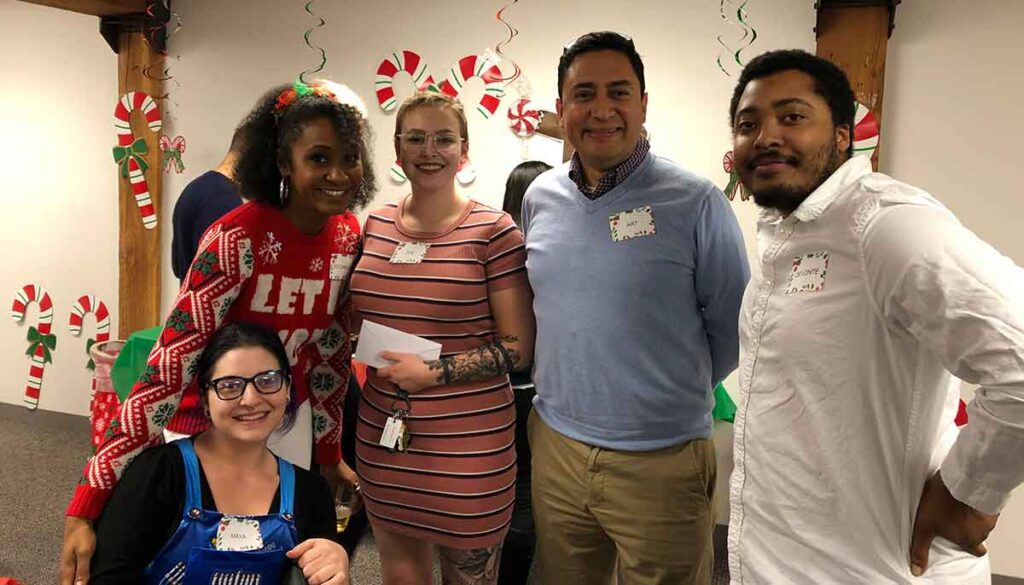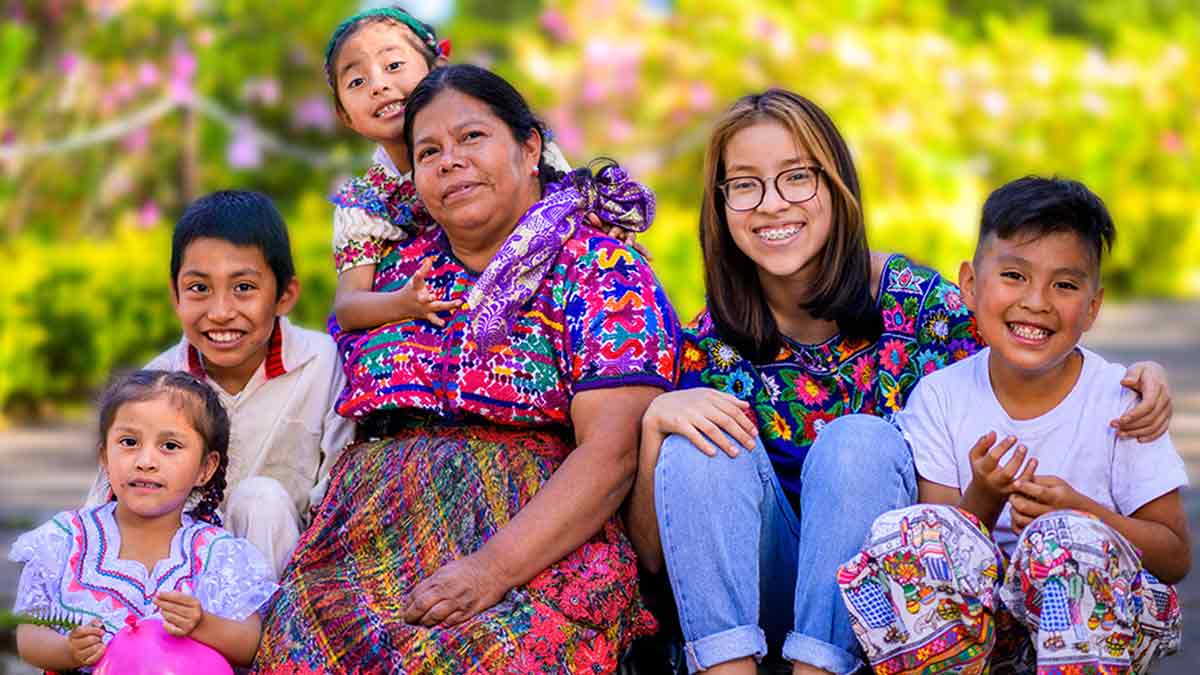Scrolling through the research vault on the American Library Association’s website, we noticed countless articles touting the benefits of local libraries.
And these weren’t just about literacy. Many had to do with community well-being as a whole. They were about why libraries matter. Here’s what we mean, via a sampling of titles:
- “Public libraries provide valuable meeting spaces”
- “Patrons find that public libraries improve quality of life and are a good use of tax revenue”
- “Public libraries support personal productivity and cultural engagement”
- “Public libraries provide crucial access to computers and the Internet”
- “The public library supports continuing education, workforce development, and sense of place in community”
Three weeks after Art Garcia, CLI’s chief information technology officer (CITO), immigrated to the U.S., he found himself staring at a library in Burien, Washington. He took a chance and walked in. A few months later, he could personally verify the truth in the article titles above.
The resources in the library helped him learn English, he made some good friends, and he learned the value of a cover letter.
Here’s Art’s story.
Would you care to share with us your experience with libraries?
Art: In 2011, I ended up in Seattle. I was living with my auntie at the time, no job, I didn’t know anyone.
I had a degree, but I didn’t have any experience working in the States, so I was another crazy guy chasing his dream. I didn’t speak English. I was there just by myself. My wife and daughter were still in Mexico because we didn’t have a place to live, so I was . . . not frustrated . . . but I felt hopeless.
This is such a great country — everybody talks about that — but I didn’t know what to do.
I decided one day to get out of my comfort zone. Three weeks after I moved, I was walking in this town in Washington called Burien, and I saw this nice building.
For me, being from Mexico, it didn’t look like a library. It looked like a store. I ended up sitting there and reading books in Spanish because that’s my language, and that was the first interaction I had with the library.
Did you begin to learn English by going to the library?
Art: I started practicing my English, trying to read books. But I also learned that the libraries have movies. DVDs, right? And I thought, “Oh my gosh, this is great!”
I would check them out and watch them, and I would turn the subtitles on in Spanish so I could overlay the actual sound with the actual meanings. I started taking notes. So that’s how everything started.
What resources did the library offer at that time?
Art: I was very surprised by the resources and tools the library had to offer. Me, as an immigrant, we didn’t have things like this in Mexico. Yes, we have libraries, but a library like this?!
They had free internet and DVDs. I also met people in the library, the people who worked there. They became my friends. I told them I was trying to get a job, and I found the library had a lot of resources, so I used all the resources the library had to offer.
They also have these little rooms that you can use. Those are the rooms I used for my interviews.
I bought a cheap cellular [phone], and I was in this little tiny room with choppy audio, and I talked to one of the guys in the library, Freddy, and he said, “I see that you were talking on the phone. Are you OK?” And I told him I was in an interview, and he said, “No, next time, you are going to use my office.”
So I transitioned from a cheap cellular to a landline, which was way better at the time.
I also found that libraries, at the time, in the evenings, had groups of people that were offering classes for people who don’t speak English very well.
Just knowing that I had these resources available was extremely useful.
Did those resources at the library help you get your first job in the U.S.?
Art: Yes, 100%. What started as me just reading books in Spanish turned into my office. I was literally the first person in the library in the mornings because I wanted to take the best spot.
I remember reading books about how to format your résumé. In Latin America, you structure your résumé in a different way than you do in the States, but I didn’t know that.
One day, I applied for a job that I thought was perfect for me. I talked to the guys in the library, and they told me that I needed to tailor my résumé.
So I started working on that part, and I applied for the job and nothing happened. And I really needed to know why they didn’t call me so I could learn and understand what I was doing wrong.
I called the company headquarters and talked to the front desk receptionist. I was transferred to maybe six to nine people, and ended up talking to the HR person. She found my application and told me I was rejected, and I asked her why. And she told me that I didn’t include a cover letter.
So the next day, I went to the library and talked to my friends. I said, “Hey, what’s a cover letter?” And they were like, “Oh my gosh!” They pointed me to a specific section in the library with a whole section of books that explained what it is and what you needed to do. That was extremely helpful to me.
I think all those back-and-forths talking to companies and not being selected and going back to the library and talking to the people in the library helped me a lot. They are fantastic people with good hearts and were just trying to help me, and at the very end, they did. And that’s how I got my first job.
How long were you going to the library during that period of time?
Art: I started going probably around February or March, and I got my first job in July.
I remember when my wife and daughter flew in from Mexico and we were together, my daughter used to see me in the library. Now, every time we are in Burien, she’ll say, “Hey, Dad. That used to be your office, right?”
Want more feel-good content like this? Sign up for our newsletter!






